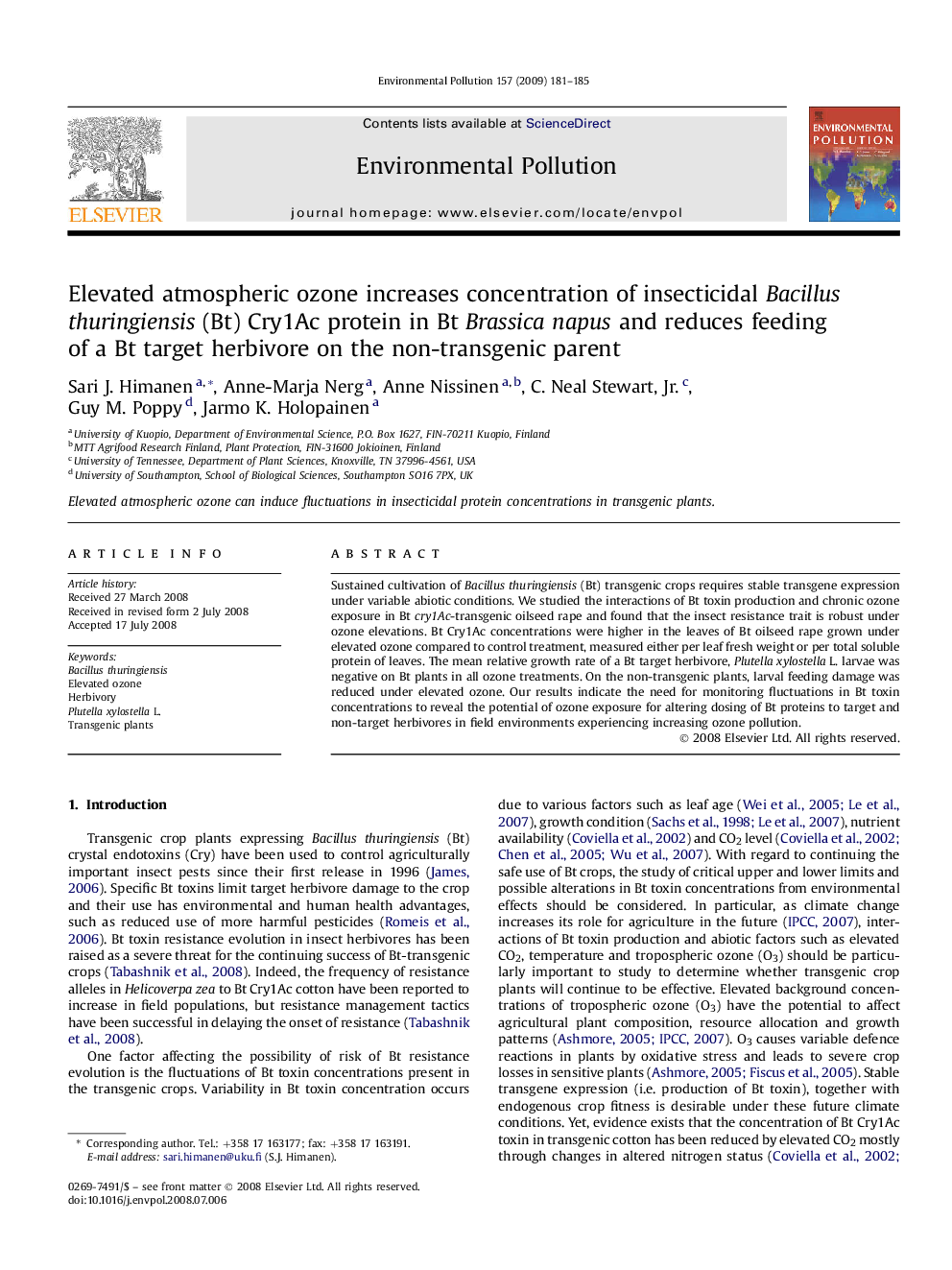| Article ID | Journal | Published Year | Pages | File Type |
|---|---|---|---|---|
| 4425975 | Environmental Pollution | 2009 | 5 Pages |
Sustained cultivation of Bacillus thuringiensis (Bt) transgenic crops requires stable transgene expression under variable abiotic conditions. We studied the interactions of Bt toxin production and chronic ozone exposure in Bt cry1Ac-transgenic oilseed rape and found that the insect resistance trait is robust under ozone elevations. Bt Cry1Ac concentrations were higher in the leaves of Bt oilseed rape grown under elevated ozone compared to control treatment, measured either per leaf fresh weight or per total soluble protein of leaves. The mean relative growth rate of a Bt target herbivore, Plutella xylostella L. larvae was negative on Bt plants in all ozone treatments. On the non-transgenic plants, larval feeding damage was reduced under elevated ozone. Our results indicate the need for monitoring fluctuations in Bt toxin concentrations to reveal the potential of ozone exposure for altering dosing of Bt proteins to target and non-target herbivores in field environments experiencing increasing ozone pollution.
